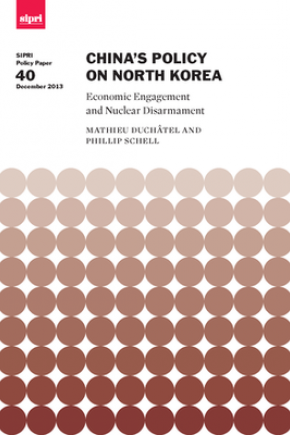China’s Policy on North Korea: Economic Engagement and Nuclear Disarmament
In the period between North Korea’s second and third nuclear tests, and in the midst of the succession to Kim Jong Il, China’s economic relations with North Korea expanded at an unprecedented pace. It is a widely held view in China that this increase in economic exchanges can help make non-proliferation measures more effective and revive the disarmament process.
This report looks back at four years of Chinese policy on North Korea to examine this thesis. The authors, placing a unique emphasis on Chinese perspectives, show that bilateral economic relations and China’s policy on the North Korean nuclear issue are indeed linked. They conclude that this makes China by far the most important player in securing non-proliferation and containment, two intermediary goals on the way to North Korea’s denuclearization.
1. Introduction
2. China’s balancing act: Supporting a stable succession in the context of nuclear crisis
3. China’s support for North Korean economic development policies
4. China’s strategy to promote denuclearization: The role of economic engagement
5. Conclusions
Appendix A. Official visits
Appendix B. Key statements and agreements of the Six-Party Talks


